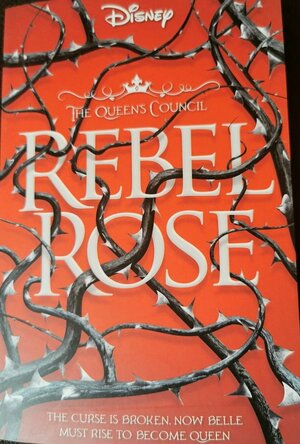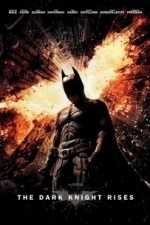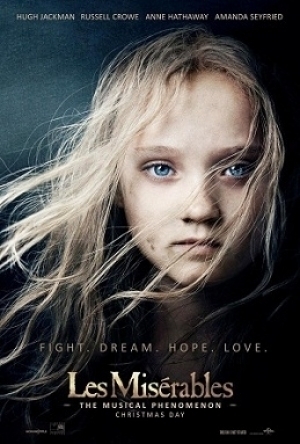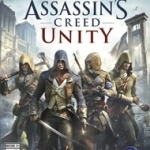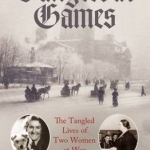
Dangerous Games
Book
"Dangerous Games" is the remarkable story of two cousins, Lisa Hill [1900-96] and Lily Sergueiew...
Cody Cook (8 KP) rated Writings Of Thomas Paine Volume 4 (1794 1796); The Age Of Reason in Books
Jun 29, 2018
The book seems to have had three major objectives: the support of deism, the ridicule of what Paine found loathsome in Christian theology, and the demonstration of how poor an example the Bible is as a reflection of God.
In a sense, Paine's arguments against Christian theology and scripture were meant to prop up his deistic philosophy. Paine hoped that in demonizing Christianity while giving evidences for God, he would somehow have made the case for deism. But this is not so. If Christianity is false, but God exists nonetheless, we are not left only with deism. There are an infinite number of possibilities for us to examine regarding the nature of God, and far too many left over once we have eliminated the obviously false ones. In favor of deism Paine has only one argument—his dislike of supernatural revelation, which is to say that deism appeals to his culturally derived preferences. In any case, Paine's thinking on the matter seemed to be thus: if supernatural revelation could be shown to be inadequate and the development of complex theology shown to be an error, one could still salvage a belief in God as Creator, but not as an interloper in human affairs who required mediators.
That being said, in his support of deism, Paine makes some arguments to demonstrate the reasonableness in belief in, if not the logical necessity of the existence of, God which could be equally used by Christians.
For instance, just as the apostle Paul argued in his epistle to the Romans that, "what can be known about God is plain to [even pagans], because God has shown it to them. For his invisible attributes, namely, his eternal power and divine nature, have been clearly perceived, ever since the creation of the world, in the things that have been made" (Romans 1:19-20, ESV), so also Paine can say that, "the Creation speaketh an universal language [which points to the existence of God], independently of human speech or human language, multiplied and various as they be."
The key point on which Paine differs from Paul on this issue is in his optimism about man's ability to reason to God without His assisting from the outside. Whereas Paul sees the plainness of God from natural revelation as an argument against the inherent goodness of a species which can read the record of nature and nevertheless rejects its Source's obvious existence, Paine thinks that nature and reason can and do lead us directly to the knowledge of God's existence apart from any gracious overtures or direct revelation.
On the witness of nature, Paine claims, and is quite correct, that, "THE WORD OF GOD IS THE CREATION WE BEHOLD: And it is in this word, which no human invention can counterfeit or alter, that God speaketh universally to man." What is not plainly clear, however, is that man is free enough from the noetic effects of sin to reach such an obvious conclusion on his own. Indeed, the attempts of mankind to create a religion which represents the truth have invariably landed them at paganism. By paganism I mean a system of belief based, as Yehezkel Kaufmann and John N. Oswalt have shown, on continuity.iv In polytheism, even the supernatural is not really supernatural, but is perhaps in some way above humans while not being altogether distinct from us. What happens to the gods is merely what happens to human beings and the natural world writ large, which is why the gods are, like us, victims of fate, and why pagan fertility rituals have attempted to influence nature by influencing the gods which represent it in accordance with the deeper magic of the eternal universe we all inhabit.
When mankind has looked at nature without the benefit of supernatural revelation, he has not been consciously aware of a Being outside of nature which is necessarily responsible for it. His reasoning to metaphysics is based entirely on his own naturalistic categories derived from his own experience. According to Moses, it took God revealing Himself to the Hebrews for anyone to understand what Paine thinks anyone can plainly see.
The goal of deism is to hold onto what the western mind, which values extreme independence of thought, views as attractive in theism while casting aside what it finds distasteful. But as C.S. Lewis remarked, Aslan is not a tame lion. If a sovereign God exists, He cannot be limited by your desires of what you'd like Him to be. For this reason, the deism of men like Paine served as a cultural stepping stone toward the atheism of later intellectuals.
For Paine, as for other deists and atheists like him, it is not that Christianity has been subjected to reason and found wanting, but that it has been subjected to his own private and culturally-determined tastes and preferences and has failed to satisfy. This is the flipside of the anti-religious claim that those who believe in a given religion only do so because of their cultural conditioning: the anti-religionist is also conditioned in a similar way. Of course, how one comes to believe a certain thing has no bearing on whether that thing is true in itself, and this is true whether Christianity, atheism, or any other view is correct. But it must be stated that the deist or atheist is not immune from the epistemic difficulties which he so condescendingly heaps on theists.
One of the befuddling ironies of Paine's work is that around the time he was writing about the revealed religions as, “no other than human inventions set up to terrify and enslave mankind, and monopolize power and profit," the French were turning churches into “temples of reason” and murdering thousands at the guillotine (an instrument of execution now most strongly identified with France's godless reign of terror). Paine, who nearly lost his own life during the French Revolution, saw the danger of this atheism and hoped to stay its progress, despite the risk to his own life in attempting to do so.
What is odd is that Paine managed to blame this violent atheism upon the Christian faith! Obfuscated Paine:
"The Idea, always dangerous to Society as it is derogatory to the Almighty, — that priests could forgive sins, — though it seemed to exist no longer, had blunted the feelings of humanity, and callously prepared men for the commission of all crimes. The intolerant spirit of church persecution had transferred itself into politics; the tribunals, stiled Revolutionary, supplied the place of an Inquisition; and the Guillotine of the Stake. I saw many of my most intimate friends destroyed; others daily carried to prison; and I had reason to believe, and had also intimations given me, that the same danger was approaching myself."
That Robespierre's deism finally managed to supplant the revolutionary state's atheism and that peace, love, and understanding did not then spread throughout the land undermines Paine's claims. Paine felt that the revolution in politics, especially as represented in America, would necessarily lead to a revolution in religion, and that this religious revolution would result in wide acceptance of deism. The common link between these two revolutions was the idea that the individual man was sovereign and could determine for himself what was right and wrong based on his autonomous reason. What Paine was too myopic to see was that in France's violence and atheism was found the logical consequence of his individualistic philosophy. In summary, it is not Christianity which is dangerous, but the spirit of autonomy which leads inevitably into authoritarianism by way of human desire.
As should be clear by now, Paine failed to understand that human beings have a strong tendency to set impartial reason aside and to simply evaluate reality based on their desires and psychological states. This is no more obvious than in his own ideas as expressed in The Age of Reason. Like Paine's tendency to designate every book in the Old Testament which he likes as having been written originally by a gentile and translated into Hebrew, so many of his criticisms of Christian theology are far more a reflection upon himself than of revealed Christianity. One has only to look at Paine's description of Jesus Christ as a “virtuous reformer and revolutionist” to marvel that Paine was so poor at introspection so as to not understand that he was describing himself.
There is much more that could be said about this work, but in the interest of being somewhat concise, I'll end my comments here. If you found this analysis to be useful, be sure to check out my profile and look for my work discussing Paine and other anti-Christian writers coming soon.
Lottie disney bookworm (1056 KP) rated Rebel Rose (The Queen's Council #1) in Books
Dec 29, 2020
Controversially, Emma Theriault baits the hardcore Disney fans straight out of the gates by naming her Prince Lio (Lio, Lion, beast, gettit?) rather than Adam. In the grand scheme of things this can easily be forgiven but it still seems a strange choice. Maybe Adam was too English for a French Prince?
However, the use of first person perspective ensures that our protagonist remains firmly in Belle. Belle has refused the title of Princess upon marriage in order to stay true to her roots but is constantly hiding her true self: even referring to a trip around Europe as “one last adventure before the walls of the castle close around her”. When Belle witnesses the revolutionary sparks within the city this divides her further: how can she be part of the nobility these people rally against and an avid “commoner” at the same time?
In truth, Belle as a character divided me as well. Belle has always been my favourite Disney Princess (possibly to do with that massive library) and, in the most part, I feel Theriault wrote her well and stayed true to the character. However, in the early pages Belle felt very spoilt and selfish to me: preferring to disguise herself and explore Paris rather than support Lio in explaining his decade-long disappearing act to King Louis.
I was intrigued to know what my fellow reviewers thought and was unsurprised to see a LOT of criticism of our heroine, her shunning of the title of Princess and her lack of enthusiasm to be a leader. However, I almost felt that this made the story more realistic. Just because she broke a curse and married a Prince doesn’t mean she can automatically feel ready and comfortable leading a kingdom! Maybe she just has a fondness for hairy men?
Belle’s reluctance and tentativeness to lead also fed very nicely into her passion to improve the lives of the residents of the kingdom of Aveyon. This is common sense to her and therefore doesn’t feel like ruling. Indeed, it is not seen by any of the main characters as ruling but in the end it saves them all from a revolution of their own.
I would have liked Lio to be a little bit more developed than he was. The fact that he harboured an element of PTSD from the curse was really interesting but not explored any further than his nightmares and aversion towards roses. There was undoubtedly chemistry between him and Belle but it was just a bit lacklustre in my opinion. This may be due to his absence for a lot of the book but I felt the reader could have loved him a lot more than we did.
Lio’s cousin Bastien is the slimy villain of the tale and I would have liked a bit more mystery and suspense within his character. I appreciated that Belle didn’t like him initially as he was a powdered, wig wearing noble who was close to King Louis, basically as far away from Belle as possible. Bastien is also quite snobby towards Belle in his earliest chapters so you can’t blame her for disliking him.
However, by using language to plainly show that Belle distrusts her husband’s cousin, Theriault instantly creates a flashing neon “villain” sign above his head. This would have been fine in a middle-grade book but within YA I think the reader could have been afforded to be misled a couple of times before uncovering Bastien’s real intentions.
**This section contains spoilers**
I also believe that Bastien’s eventual story arc was a tad unbelievable. At first I thought his revolutionary sympathies and further plots with various goons was a ruse in order to gain the throne for himself, particularly once he had established himself firmly with the advisory. Emma Theriault’s decision to keep Bastien true to the revolution seemed rushed, and a bit odd to be honest. This is a noble who lives in the lap of luxury and attends to King Louis himself but who then turns on his own kind after basically forcing the kingdom of Aveyon to break away from France? It didn’t seem plausible to me.
Rebel Rose is an easy to read continuation of one of our favourite Disney tales. It reintroduces us to old favourites such as Mrs Potts and Lumiere as well as introducing new characters such as Marguerite and Bastien. Belle’s journey to staying true to herself and following her gut is one anyone can empathise with and her discovery that she does not have to appease to outsider’s expectations will never cease to be important.
The magic contained within this novel is a perfect springboard for the rest of the novels within the Queen’s Council series: the next one is based on Mulan and will be written by Livia Blackburne before Jasmine’s story by Alexandra Monir follows in 2022. The majority of the action within this novel does take place towards the end so it can be a little slow paced and politics focused but I enjoyed seeing Belle and Lio break free of their fairytale life and become a little more real.
Although this isn’t my favourite Disney novel, I do appreciate the break away from the retelling genre and the move towards bringing these well-known characters into the real world. For a debut novel I think Emma Theriault should be immensely proud: the research for the historical context alone must have been a mission!
RəX Regent (349 KP) rated The Dark Knight Rises (2012) in Movies
Feb 19, 2019
With this much hype, would it possible live up to potentially bloated expectations? The first reviews hit last monday, with 4 to 5 stars being the consensus. Well, it did! The Dark Knight returns one last time, after eight years have passed since the events of The Dark Knight and Batman had retreated into the rebuilt Wayne Manor as Commissioner Gordon (Gary Oldman), maintaining the lie that Harvey Dent was Gotham’s The White Knight, and not the maniacal Two-Face, had managed to clean up Gotham City.
Batman was no longer needed but in the meantime, Bane has arrived in the city with grand plans for its destruction. I won’t go much further into the plot that this, though I will probably write a more spoiler heavy review for the Blu-ray later in the year. But for now, I will try to maintain the film’s integrity.
When we first meet Bruce Wayne after almost a decade of seclusion, he is a broken man, both physically and mentally following the murder of his childhood sweetheart, Rachel Dawes in the previous film and the toll of nightly combat. So the first port of call is to bring Batman back to the streets of Gotham. The sense of excitement is palpable and very much a part of what makes Nolan’s films tick.
He draws his audience into the narrative as if we are part of the events and the universe as it unfolds, leaving us not just wanting Batman to return for the sake of the action but for Gotham’s sake as well. Bane, played so excellently by Tom Hardy, was a little difficult to understand from behind his mask, but still conveyed an enormous amount of presence and power, as he lays siege to the city but not as Terrorist per say, but as a freedom fighter or revolutionary, with many visual references to the French Revolution to keep us going.
Anne Hathaway’s Catwoman, though not named as anyone other than Selina Kyle, was a credit to her character as well as the actress. Dark, sultry, seductive and agile, her feline credibly was intact, whilst still being a very human character. Her duplicity was bread from desperation rather than evil and her motives convincingly drive her in both good and more dubious endeavours.
*** MAJOR SPOILER***
The less said about Talia Al Ghul the better, but the for those aware of her role, it was well-played, though her final scene was the hammiest in the film, possibly the entire trilogy.
Then there’s the supporting cast, such as Mathew Modene, who does a great job as Dept. Commissioner Foley and Cillian Murphy’s back again, as the subtly unrecognisable Scarecrow, who besides some frayed shoulder’s on his jacket, could have been anyone,and that’s the beauty of Nolan’s Batman universe. It’s fluid and you can’t count on anything on anyone for too long.
But this franchise would be nothing without Hans Zimmer percussive score, pounding as much as it was gentle, it works well among with Nolan’s direction to craft the near perfect conclusion to the Trilogy. Both riff on earlier films and supe it up accordingly whilst maintaining the film’s integrity.
In the end, my expectations were met and exceeded. Nolan has crowned his trilogy with a film which is of the same calabar as the two which preceded it, filling in many of the blanks, choosing the right characters to take on and doing so a variety of ways, touching this time on the flamboyant Bain, though scrapping the “Venom” plot from the comics, creating an intriguing Catwoman and building another major character in the form of R. John Blake (Joseph Gordon-Lovett).
The ending of the film is just perfect, not only for this but for the entire Trilogy. With nods to Inception though I believe that it is just a nod and not as similar as some would protest, but this is epic in the way that The Dark Knight never tried to be and Batman Begins didn’t need to be. The threat is apocalyptic, in keeping with the genre, but believable in keeping with Nolan.
The same can be said for the action, though I must admit, the sentimentalist in me wanted to see the Batmoble/Tumber back, though it was there in triplicate, as Bane steels three prototype Tumbers from Wayne Enterprises, for his private army, but the Bat (Batwing) was stunning, and the Batpod made a reappearance. The Final showdown will leave you breathless, the perfect blend of direction, Zimmer’s score and some of the most intense and meaningful action you’ll see on the big screen.
The only real faults with The Dark Knight Rises stem from its scale and change in direction. It’s more about Batman’s evolution from crime fighter to savour. Less intense on a personal level, but much grander in its ideals and horror as Gotham is destroyed on scale never seen in a film of this type. But it’s not as far-fetched as one may think, as it grounds itself with historical references, such as the French Revolution, which was hardly far-fetched, though it was hard-hitting and is well translated here.
Bruce Wayne completes his journey from the boy who witnessed his parents murder, to a young man who could not grow beyond it, to a man who lost himself in a journey to understand the criminal mind. Finally returning as Batman, who defied his mentor to protect his beloved city, to a master detective. But here, he returns to his roots.
The billionaire who never cared about his wealth as much as he cared for the people of Gotham, he ends up exactly where he needed to be. Decide for yourself, whether it’s a happy ending, sad or satisfying, but either way, it was not only the best way to advance the saga, but the best way to end the series as a whole. Thanks to Nolan and his crew, we now have the most definitively brilliant Batman series EVER committed to celluloid, (or digital), and no matter what is to follow, whether it is to be the Justice League mash-up or another reboot, I suspect that it will be a long, long time before anyone can beat these.

Audio guide Rome Crazy4Art
Travel and Entertainment
App
Audio guide awarded by Facebook! Our app has been selected for the start-up program FB "Bootstrap...
Gareth von Kallenbach (980 KP) rated Les Misérables (2012) in Movies
Aug 7, 2019
For years I studied and sang opera. I know music and I’ve sung my fair share of Les Mis pieces in my past. I adore Victor Hugo and “Les Misérables” is by far one of my favorite literary works. When I began to watch this movie, I was keyed up to be critical on the vocal spectrum, the literary aspect, and the representation of one of my favorite Broadway/London pieces. To be frank, I wasn’t disappointed at all.
For those unfamiliar with Hugo’s work or what to expect with Les Mis, let me give you a brief synopsis on its plot and the history of the French revolution in which this takes place. France has just endured her infamous Revolution (the one with the guillotine, Marie-Antoinette, and the Sans Culottes movement) and her people are still suffering. There is no money for food, the country is in the midst of a depression, and the Napoleonic regime is yet to come to fruition. Thus, you find Fantine (Hathaway), a poor but determined (and beautiful) woman trying desperately to make enough money to support her daughter, Cosette, who resides with friends in another city. The book reveals that Madame Thénardier (Bonham-Carter) and her husband, Thénardier (Baron-Cohen) were supposed to be taking the money that Fantine had given to them to provide for her daughter, Cosette. Instead, however, Cosette is forced to live in absolute poverty while Thénardier’s daughter, Eponine, lives the life of opulence. Meanwhile, Jean Valjean (Jackman), an ex-convict, is trying desperately to find legitimate work after his stint in prison for stealing a loaf of bread to provide for his starving family. The infamous policeman, Javert (Crowe), feels Valjean will re-offend and makes it his mission to pursue Valjean until the end.
Finding the world a terrible place as an ex-convict, Valjean seeks to steal from a church her silver, believing he has no other way to survive. It is the love of a good priest, however, who gives Valjean the silver he seeks under the pledge he will become a servant of God and provide for others the same good he has provided for him. Thus, years later, we find Valjean a reformed man (who has skipped on his parole and assumed a new name), running a factory in which Fantine works. And so, when Fantine is fired from her job and takes to a life of prostitution in order to provide for her daughter, it is Valjean who feels the burden of her demise and takes it upon himself to save Cosette and raise her as his own.
Of course, this entire time, Javert is pursuing Valjean and a new revolution is starting to take place amongst Paris’ people. Years later we find Cosette grown to womanhood (now played by Seyfried), and falling in love with one of the revolution’s key players, a youth by the name of Marius (Redmayne). The Thénardiers are back again and we find their once-grand lifestyle has resorted to a life of gutter-crime and Éponine (now played by Barks), is desperately in love with Marius as well (although her love is unrequited). For those unfamiliar with how the story plays out, I will leave it at that.
I will caution those who have never seen this play to prepare for a long show. It is very dramatic and very intense, but visually breath-taking and emotionally moving in so many ways. Vocally, there are times when the legato is lacking and some transitions seemed forced (Crowe struggled many times with allowing his natural vibrato to come through instead of pushing a sustained note; Seyfried’s vibrato is very trill-like and sometimes distracts from the pure quality of her spinto-soprano range). However, I must say that I was blown away by Hathway’s performance (she brought me to tears with “I Dreamed a Dream” due to her emotional rendition) and her ability to truly escape into her character. Similarly, Tviet (he played Enjolras) was stunning with his vocal command and Redmayne was equally as impressive. Jackman will amaze you with his rich tenor and, surprisingly, I found Crowe to have a fantastic baritone when he didn’t force his work. Baron-Cohen and Bonham-Carter provided a much needed comical respite throughout the film (and both sing beautifully as well, although this movie didn’t focus on their vocal command as much). Barks did a lovely job for most of her work; although I found her rendition of “On My Own” a bit forced (she is a true mezzo but seemed to push her high notes, although this may have been where her voice shifted into her head voice which is no fault of her own).
Overall, if you are an avid musical lover and have been waiting for a proper rendition of this production, this movie will astound you. Visually, the movie is breath-taking and the acting is absolutely fantastic. I’m still haunted by the revolutionary song, to be honest. If you’ve been waiting for a musical worthy of the big screen, this one is it. Look for it to sweep the Oscars this year.
This movie deserves an A all around.

Mike V: Skateboard Party Lite
Games and Sports
App
Play with your friends using the multiplayer mode, complete achievements, gain experience and...

Low Carb Diet Recipes
Food & Drink and Health & Fitness
App
Discover many Low Carb Diet recipes with this collection of 166 tuitional video lessons. Videos...
Cody Cook (8 KP) rated A Black Theology of Liberation in Books
Jun 29, 2018
One major issue for Cone is one of authority. The experience of one group of people (the oppressed) becomes equivalent with universal truth, and not simply an important concern in Christian theology. In other words, Cone makes his own experience the judge of who God is and what God is for. While “white” (a term used by Cone not so much to reflect skin color but an oppressor mentality) Christianity commits this grave error without realizing it, Cone does so with full knowledge. So, for instance, while a conservative “white” theologian would say that his own views and actions *should* be directed by the scripture (whether or not he does in fact direct them by this standard), Cone makes the judgement of the oppressed black community the ultimate truth for them– and if mass violence against whites is decided by the group as the best means to effect their liberation, so be it. Cone explicitly distances himself from the approach of King, identifying more with the violence-prone philosophy of the Nation of Islam as propounded by Malcolm X. If someone criticizes his approach, he seems to assume that they’re doing so as a “white” oppressor and should be ignored– an oppressor has no moral right to question the rightness or wrongness of the actions of the people he is oppressing. This of course ignores the criticisms of violence, even from the oppressed, of black Christians like Martin Luther King Jr., Desmond Tutu, etc. Cone is also unfortunately either unfamiliar with or unconvinced by pacifist Christian claims to be committed to peaceful action, since he equates non-violence with inaction and acquiescence. While he is absolutely correct in seeing liberation as an important theme in the Christian faith, he, like “white” religionists, allows his own experience and emotions to determine what is right and wrong to the point of supporting evil in the interest of what he feels is best for his community. However, what can’t be said of Cone’s position on violence is that it is radical, because it is emphatically not. The political heroes of most white Americans are men who used violence to gain political autonomy. Thus, it is not radical for black men and women to look up to figures like Malcolm X and James Cone who advocate doing the same thing if it seems necessary for freedom and self-determination; it is merely status quo. The problem is that Jesus calls all men and women, regardless of color, to rise above the status quo and the myth of redemptive violence.
Seizing on that point, one major problem with Cone’s view of violent revolution is that when oppressed people rise up through violence, they become the oppressor– co-opting the tools of oppression and dehumanization. “Blacks” become “white” through the use of violence. Cone seems unaware of (doubtful) or unaffected by the history of the Bolshevik, Cuban, or French revolutions, wherein the oppressed quickly became the oppressors and became twofold more a child of hell than their oppressors. His view also reshapes Nat Turner, the slave who claimed to have been directed by God to murder white women and children, into an unqualified hero. Cone’s system re-establishes and re-affirms oppression– it does not end it.
For Cone, God is black and the devil is white, because God supports the oppressed and the devil supports the oppressor. But in so closely identifying God with blackness, the actions of those in the black community are now above being questioned, just like the actions of white enslavers were, according to them, above being questioned because they aligned themselves with God and those whom they oppressed with the devil.
What Cone is really trying to get at is that since Jesus supports the cause of the oppressed, the oppressor must so distance himself from his oppressor identity that he becomes indistinguishable from the oppressed– willing to suffer along with them– if he is to be Christ-like. In other words, the “white” must become “black.” Cone says that God can’t be colorless where people suffer for their color. So, where blacks suffer God is black. Taking this logic, which is indeed rooted in Scripture, where the poor suffer, God is poor. Where babies are killed in the womb, God is an aborted baby. Where gay people are bullied, God is gay. It is our obligation to identify with the downtrodden, because that’s what Jesus did. Paul, quoting a hymn of the church about Jesus, puts it this way:
“In your relationships with one another, have the same mindset as Christ Jesus:
‘Who, being in very nature God,
did not consider equality with God something to be used to his own advantage;
rather, he made himself nothing
by taking the very nature of a servant,
being made in human likeness.
And being found in appearance as a man,
he humbled himself
by becoming obedient to death—
even death on a cross!'”
–Philippians 2:5-8
Jesus not only gives up his power to express love to the powerless by identifying with them, He also takes on their sin and suffers with and for them. This is the essence of the gospel, and it often gets lost when we translate it into our daily lives. For Cone, this important truth gets lost in the banner of black militantism and the cycle of violence. For so many American Christians, it gets lost when they reduce the political nature of Christianity to scolding those whose private expression of morality doesn’t line up with theirs. We refuse to identify with sinners (which is a category we all fit into) in love.
Mothergamer (1619 KP) rated the PlayStation 4 version of Assassin's Creed Unity in Video Games
Apr 3, 2019
Introducing Arno Dorian
The viewpoints in 16th century Paris are stunning, showing off a beautiful thriving city with a lot of people. The scenes with the Revolution were also interesting to see and interact with because of the people and I found I would stop and just listen. This also had me remembering all the French I learned as I listened to various conversations. At times having a lot of people could be frustrating when having to chase a target for a mission or spy on someone because they would get in the way causing a mission to fail if you didn't get to where you needed to be in time. There were also times where the controls would be a little wonky and Arno would grab a wall when I wanted him to just run or jump. It didn't happen often though so I didn't mind too much. I also didn't see the point of the game having four different types of currency. I'm not kidding. You had the livres, (what francs were first called) sync points, creed points, and helix credits. I felt this all could have done with just one currency. Instead you have money to buy stuff, the sync points and creed points are used to upgrade gear and skills, while the helix credits you use real money to buy things via UPlay. All of it is completely useless. UPlay is not only pointless, it just screams of greed. The game really only needed one currency and nothing else.
A spectacular view of 16th Century Paris
I do understand that Arno's tale of revenge with the Assassins vs. Templars has been done before, but I found I did like the story for what it was; an entertaining adventure with some pivotal history and interesting characters in it. Yes, they did take a few liberties with some of the historical aspects, but it flowed really well and was done in a subtle way that made all the events mesh well together. I liked the character of Elise also, and I wish there had been a few more main missions with her because she offered a different point of view and also showed that not all the Templars were power hungry insane people. There's also the factor that she and Arno together were intriguing and they made a great team.
Elise and Arno
There are several different ways to do many of the missions which I found to be fun. You could either sneak in a window or disguise yourself as one of the soldiers and just walk right in the front door. The AI for the enemies is more aggressive here so I found myself relying heavily on smoke bombs often. At some points it got a little frustrating especially with the final memory sequence because I had to be a certain distance from the target to finish the mission. There were a couple of glitch issues such as a location on the map for a quest not showing up and an odd one where Arno got stuck in a wall and it looked like he was swimming on the wall. Those were the only technical problems I ran into which isn't too bad. Overall the game itself is fun to play with lots to see and do. There's even a mission with a hot air balloon that's very cool.
Hot air balloon over Paris is awesome
Once I had finished up the main story of Unity, I started the Dead Kings DLC. This happens a week after the events of the main story and in Franciade (now Saint Denis) and Arno runs into the Marquis de Sade once again who wishes for Arno to help him find the manuscript of Nicoleas de Condorcet which is rumored to be in the tomb of Louis IX. Arno agrees to help him in exchange for a ship to take Arno to Egypt. After that you get to explore Franciade and while not as big as Paris it's just as beautiful and there's lots to explore above and below.
A bird's eye view of some of Franciade
Arno runs into some tomb raiders who happen to be working for Napoleon Bonaparte and we see him once again throughout the area. Napoleon is looking for something in a Precursor Temple. While we all know what that could mean Arno does not, but he knows that whatever it is can't be good. He also befriends a young boy named Leon and they work together to figure out exactly what it is Napoleon is after. There are a lot of side missions here too along with some murder mystery quests and a few more co-op missions as well. There are even a few take over the enemy fort missions that are fun to do as well.
Some of the missions could be a bit frustrating because a lot of them were in the catacombs and it could be very hard to see with how dark some of the areas are. I had to use Eagle Vision a lot just to be able to see where I needed to go. Luckily there were only a couple of places that were difficult to see in. You also get some new equipment that is pretty awesome like the guillotine gun basically an axe and a grenade launcher melded together. While not the stealthiest of weapons, it's a ton of fun to unleash all that firepower on your enemies. The lantern on the other hand, annoyed me. Yes, the catacombs are dark and yes you need a lantern, but it seemed a lot of the puzzles relied heavily on the lantern and it was a bit clunky and tedious. I mean having to use a lantern just so I could scare away roaches to jump on a ledge was a bit much.
The Precursor Temple was interesting to explore with a few lighting puzzles and brazier puzzles. The scenes with Arno and Leon chatting together were nice because it showed Leon gradually getting Arno to see that there is always hope and even caused Arno to change his mind about a few things. With the main story and side missions Dead Kings is only a couple of hours, but it's a couple of hours worth playing.
Arno in the Precursor Temple
Overall Assassin's Creed Unity (which includes the Dead Kings DLC for free) is a solid game and it is fun to play. There's a lot to see and do on your own and plenty to do with your friends via co-op missions. It's worth checking out because of the fun of the missions and because of the fact that the main character is actually pretty likable.

